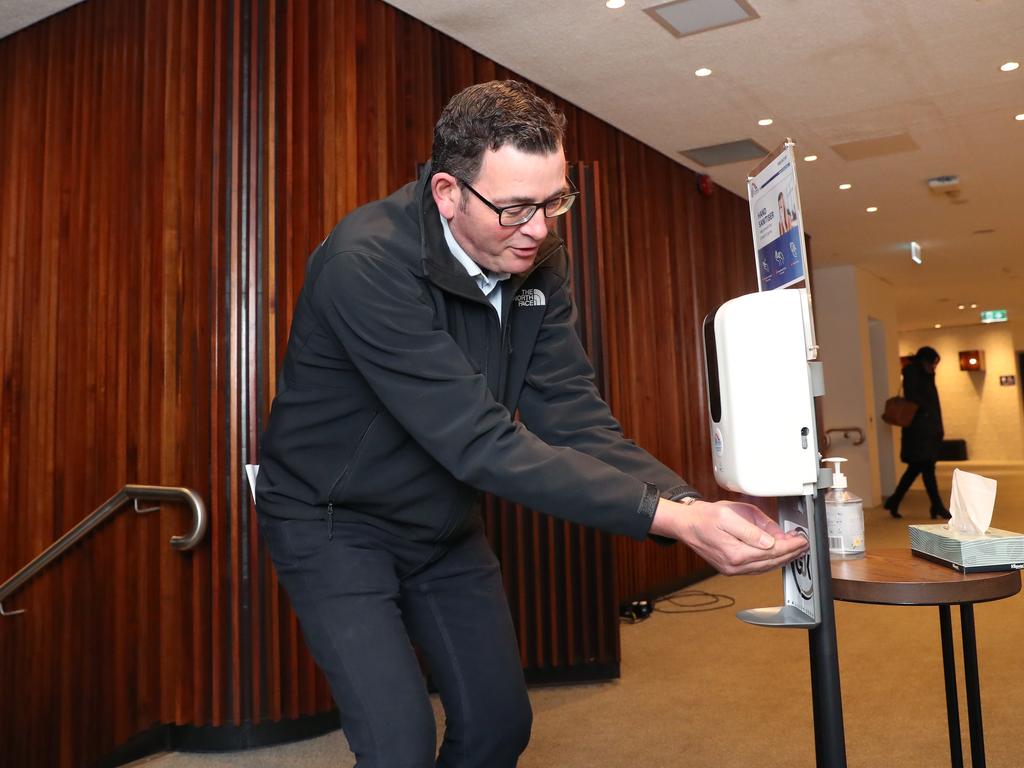Mandatory jabs at work are for your own good
Complaints about ‘choice’ are a nonsense. Employers are the ones without a choice; they have no choice but to bring these mandates in.

For me, there is a new appreciation of our occupational health and safety system, administered within each state and territory. The various laws are ones I have moaned about in the past; mega strict, often bewilderingly onerous, and expensive for employers to comply with.
In this instance, though, they have saved Australia. Thanks to them, we will become and remain one of the world’s most highly vaccinated countries. The benefits of this cannot be overstated.
Every day now, workplaces are bringing in mandatory vaccine policies and workers are discovering they have no option but to comply. The vast majority of people are happy with this situation, but there are a small minority who are not.
Arguments and legal challenges from this cohort are failing and will continue to fail. Complaints about “choice” are a nonsense. Employers are the ones without a choice; they have no choice but to bring these mandates in.
On the other hand, workers do have a choice, they can choose not to have the vaccine. No one can force anyone to be vaccinated. But any worker who makes the choice not to be vaccinated wears the consequences of that choice; the employers’ decision not to let them into their business premises, because they present too much of a health and safety risk.
Commentators and politicians who rail against this situation will find themselves increasingly being given short shrift, too. Principled positions on the topic are a luxury no one in the real world can afford. Those who want to rage against employers’ actions might put their hands in their pockets and pay the work cover premiums of any business who doesn’t implement vaccine mandates.
At some point, we have to hope the penny drops. Mandates are not about denying “freedom” to political patriots; they are about responsibility. Responsibility for the duty of care towards others, and responsibility to pay insurance premiums. They are about managing legal risk. They are about who pays the cost of a worker’s time off, and the medical bills, when they catch Covid-19 at work, or in the course of their work, and make a workers compensation claim.
Mandates are about who has to write return-to-work plans and meet the cost of paying allied health services for worker rehab from “long Covid”. They are also about avoiding civil suits for injury and loss of life, and protection from prosecution for industrial manslaughter.
When employers mandate vaccinations, ideology and politics play no part. Their decisions are not a shot in the culture war, or anything to do with left versus the right. They are not an attempt to trample on “liberty”, deny people “freedom of choice” and are certainly not about an attempt to create “medical apartheid” or a “new world order”.
Indeed, one disappointing aspect of this pandemic is the way health responses to it have become politicised.
When it came to leadership on vaccine mandates, the federal government gave Australia weasel words and vacated the space. But the states and territories stepped in, with health orders, backed in by their OH&S regulations schemes.
They gave employers no option, and someone to blame.
Safe Work Australia is our federal statutory body. It develops national policy and performs research. It compiles data on work-related injuries, illnesses and deaths and the costs these impose on employers, workers and the wider community.
According to SWA, work-related injuries and disease costs our national economy more than $61bn a year. In a pandemic, and with the advent of a new disease that causes both death and long-term illness, these costs have the potential to rise significantly.
SWA echoes our state and territory systems when it says employers have a legal duty to eliminate – or, if that is not reasonably practical – minimise the risks of Covid-19 in the workplace, to the extent they can.
They have a duty to consult workers regarding these risks, and how they will be managed. They must have policies, and if mandatory vaccination is a reasonably practicable control measure, they can implement that.
However, the employer’s duty does not end there. Because a vaccinated person may still unknowingly carry and spread the virus to others in the workplace, they must develop and implement policy and control measures to manage and minimise the risk.
Employers must ensure that workers don’t come to work when unwell, and that those present practice good hygiene, including mask wearing if required and physical distancing. They bear the costs of improving ventilation where required, increasing cleaning and maintenance.
State and territory health orders are helpful, but temporary. Our workplace health and safety system, though, endures. It forms a permanent legislative framework that is driving employers to mandate vaccination in order to manage risk.
In the long term, this effort and expense undertaken by business will ensure lower levels of disease in the wider community. The social and economic benefits of that will be seen in the near future.






There is plenty to be grateful for at the moment, and gratitude can be experienced due to the most unlikely sources.